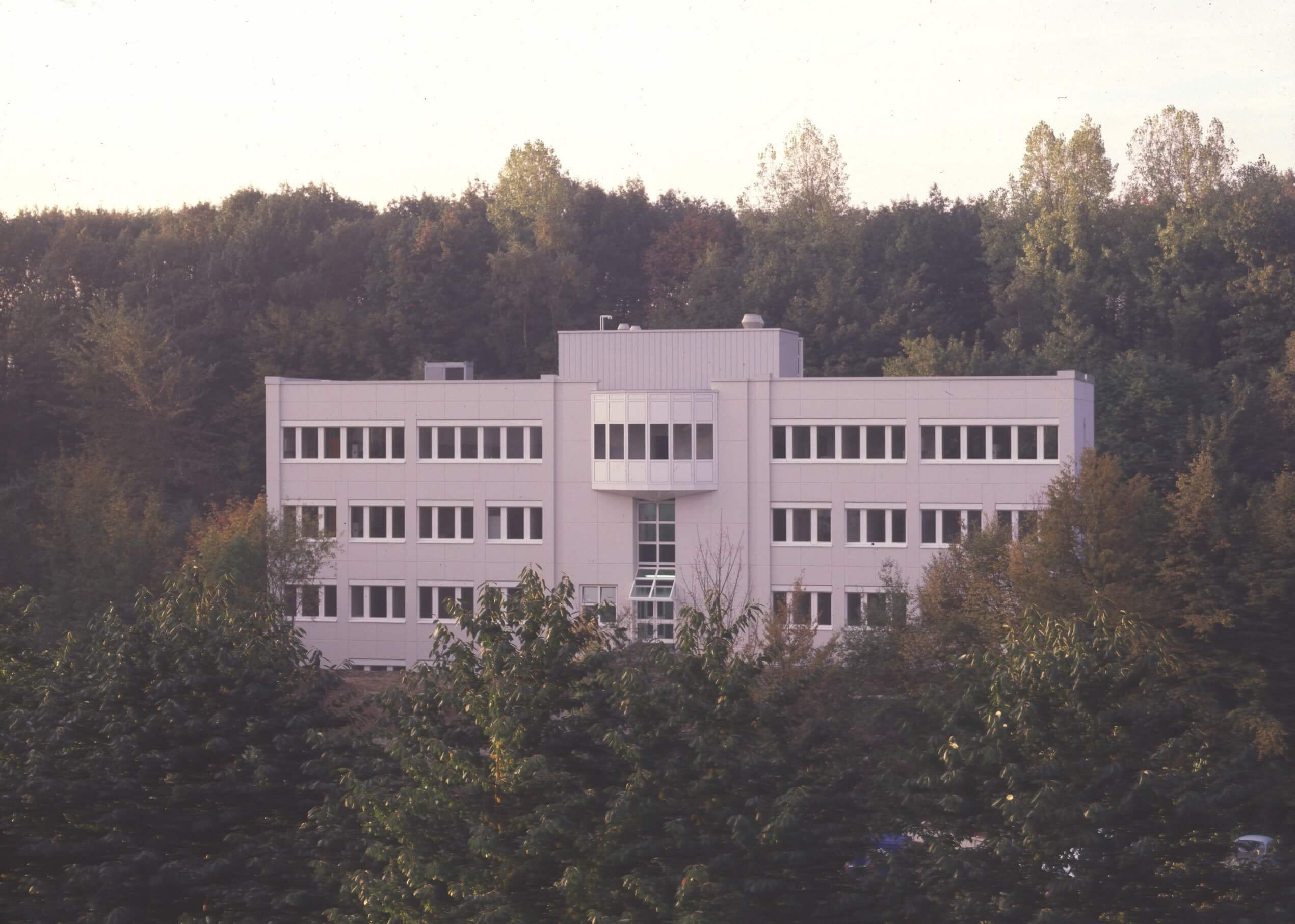
History
Professor Manfred F. Rajewsky, the founding director of the Institute of Cell Biology (Tumor
Research) [IFZ] at the Medical Faculty of the University of Duisburg-Essen, laid the
foundation for today’s research and developmental work. Following the US American model,
the University Hospital Essen had set itself the goal of establishing a Comprehensive Cancer
Center that would combine preclinical basic research with clinical application under one roof.
The forward-looking concept convinced Rajewsky to accept the appointment in Essen. With
the founding of the IFZ in 1975, the first institute for cell biology dedicated to cancer research
was established at a university hospital in Germany, in which the process of cancer
development was to be investigated. Although a nationally renowned clinical facility for
cancer therapy had already been established in Essen at the time, little was known about the
cellular basis of cancer development. Because cancer is a genetic disease that is not
inherited in most cases, cancer researchers recognized the need to elucidate the underlying
processes at the somatic cell level with the aim of significantly improving the early detection
of cancer and thus also the treatment options.
Just 12 years after its foundation, the IFZ was able to expand considerably in 1988 with
generous support from the state of North Rhine-Westphalia and the then Federal Ministry of
Research and Technology as well as the BYK-Gulden Fund for the Promotion of
Experimental Cancer Research. On the one hand, a new institute building was constructed
on Virchowstrasse, and on the other hand, the institute received a second C4 professorship,
which was filled by Walter Birchmeier in 1988. Important milestones in the development of
the Institute were achieved through investment grants from donations by the Alfried Krupp
von Bohlen- und Halbach Foundation and the company foundation of Byk-Gulden
Chemische Fabrik GmbH from Constance. In 1977, Klaus Willecke was appointed to a C3
professorship at the IFZ and headed the Molecular Genetics and Biochemistry working group
until 1986, when he moved to a professorship at the University of Bonn. In 1989, the C3
professorship was filled by Prof. Gerhart Ryffel, who researched developmental processes in
the clawed frog model at the IFZ until his retirement in 2011
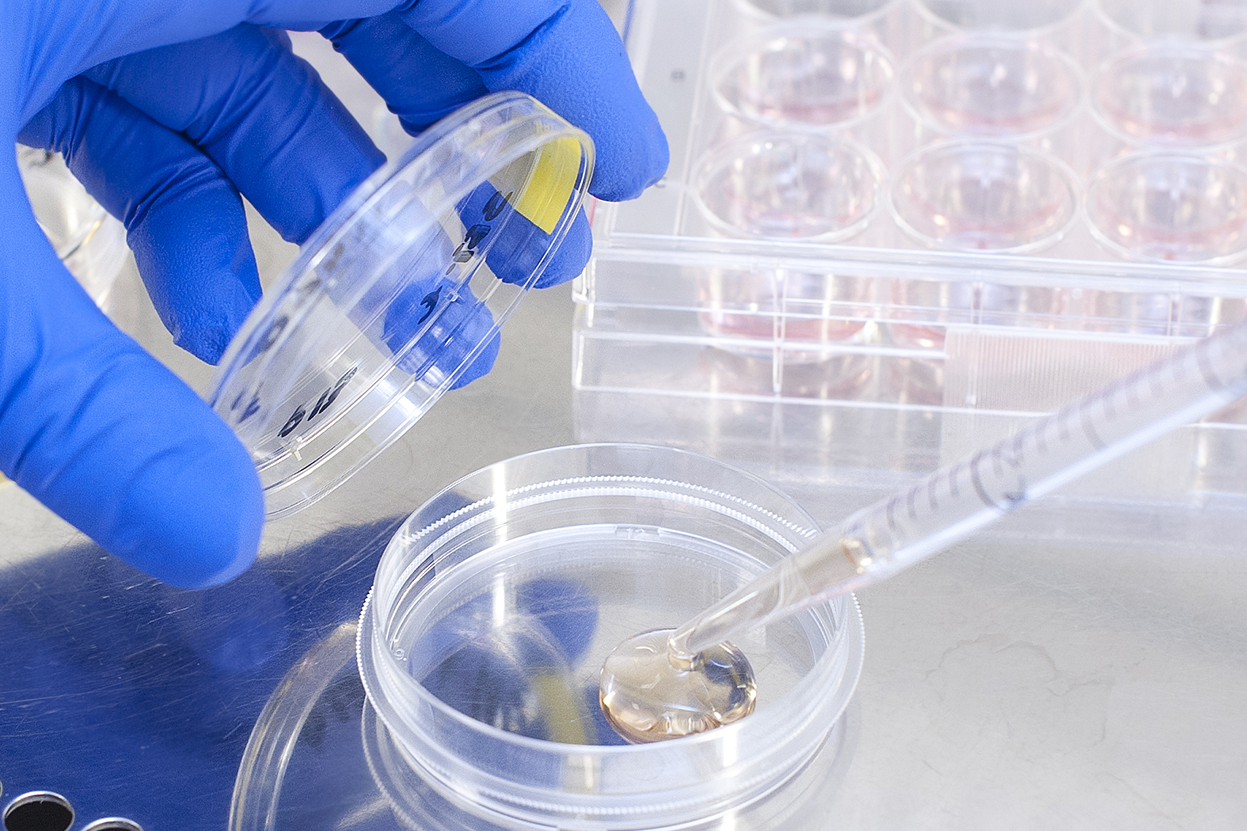
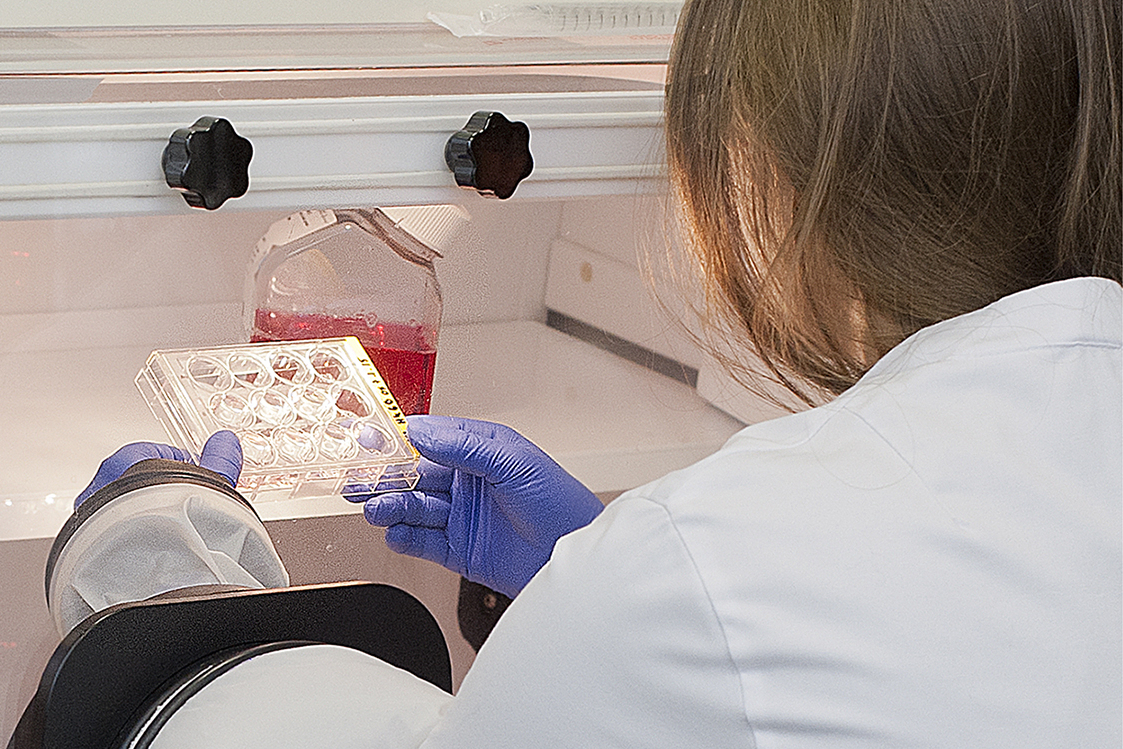
The work at the IFZ initially aimed to investigate and better understand the multi-stage
process of carcinogenesis depending on the initial cell type, the degree of cell differentiation
and the dose of cancer-causing factors, such as chemical compounds found in tobacco
smoke or certain salts. To this end, a highly sensitive immune analysis system was set up,
which used monoclonal antibodies to identify specific DNA damage and showed in individual
cells that inadequate DNA repair could increase the risk of cancer development. For
example, basic biomedical research elucidates the mechanisms of carcinogenesis by
investigating the effects of specific genetic changes caused by carcinogens on cell division in
critically altered or mutated cells step by step: “Basic research in cell biology to elucidate the
causes of cancer and its precursors does not usually lead directly to new therapeutic options.
Rather, it creates the basis for recognizing starting points for new therapeutic approaches
through a better understanding of the underlying mechanisms.”
It is thanks to the early and later research work at the IFZ that, in addition to the usual
analysis of dose-response relationships, the hitherto less considered time of exposure to a
carcinogen and the description of normal and deviant development and differentiation
processes in different cell systems became the focus of cancer research. An important
impulse for this was the introduction of a new technology for electronic cell sorting, the use of
which made it possible for the first time to characterize and separate cell populations at high throughput. Manfred Rajewsky was very well informed about the development of the new cell
sorting systems due to his long research stay at Harvard Medical School. He acquired such a
device for the IFZ at a very early stage and established the cell analysis methods to be used
for cell sorting in the laboratory.
In Essen, Walter Birchmeier and his team were the first to describe the fundamental finding
that the “cell adhesive” E-cadherin and other factors not only control developmental and cell-
biological differentiation processes, but also play an important role in the invasiveness and
metastasis of tumors. The first change in professorships took place in 1995, when Walter
Birchmeier was appointed to the Max Delbrück Center in Berlin and the second chair here
was soon filled by Tarik Möröy. Tarik Möröy’s appointment further expanded the range of
methods at the IFZ by producing model transgenic or gene-deficient mice for his research
program to investigate certain proteins that play a special role in the regulation of cell division
and the process of carcinogenesis. This and the development of so-called gene chips or
biochips made it possible to differentiate between the accumulation and expression of
genetic changes in normally developed and cancer cells. It is thanks to Dr. Möröy that, as
part of a BioChip initiative of the state of North Rhine-Westphalia with initial funding from the
IFZ-Fördervereinigung e.V., a BioChip laboratory was set up at the IFZ in 2000 for complex
and sophisticated determinations of the expression of genes.
It is also thanks to Mr. Möröy’s initiative that, together with two colleagues, he played a
leading role in establishing the Center for Medical Biotechnology and the Medical Biology
course at the University of Duisburg-Essen, which has led to close cooperation in research
and teaching with many institutions on the campus of the Essen University Hospital and the
university campus. Various collaborations with national and international cancer research
centers exist for basic research work. The closer the research interest moves to concrete
clinical issues, the more important the clinics united in the West German Tumor Center
Essen become as cooperation partners.
The current research topics are set by Ralf Küppers and Verena Jendrossek: Ralf Küppers
was appointed successor to Manfred F. Rajewsky at the IFZ in 2004 and builds methodically
on the above-mentioned technologies. With his “Molecular Genetics” working group, he
investigates, for example, the development of Hodgkin lymphoma, one of the most common
forms of lymphoma, and chronic lymphocytic leukemia. The group also studies the
development and differentiation in normal human B cells, which also serves cancer research,
as it enables a better understanding of how B cells can develop from normal B cells into B-
cell lymphomas and leukemias as a result of misguided processes. Following the
appointment of Prof. Ralf Küppers, the BioChip Laboratory was gradually developed into
today’s Genomics & Transcriptomics Facility (GTF).
In 2007, Verena Jendrossek was appointed to succeed Tarik Möröy at the IFZ. With her
research group “Molecular Cell Biology”, she has set herself the goal of working out the
molecular basis for the response of solid tumors to therapies involving ionizing radiation
(radiotherapy). This includes investigations into the mechanisms of primary and secondary
therapy resistance of solid tumors, such as bronchial carcinoma, pancreatic carcinoma,
prostate carcinoma and childhood brain tumors, as well as investigations into the
mechanisms that contribute to unwanted adverse effects caused by radiation-induced normal
tissue damage. In order to investigate the cellular response to radiation and thus the
radiation sensitivity in tumor and normal tissue cells, damage-initiating processes at the DNA
in the cell nucleus and the mitochondria are analyzed, as well as genetic, epigenetic or
metabolically active factors and intra- and intercellular signaling networks that participate in or influence the damage response. In translational research approaches, together with
radiotherapists and cooperation partners from other clinics and institutes, the use of identified
molecules and signaling pathways as predictive biomarkers or as therapeutic targets for a
modulation the therapy response is investigated.
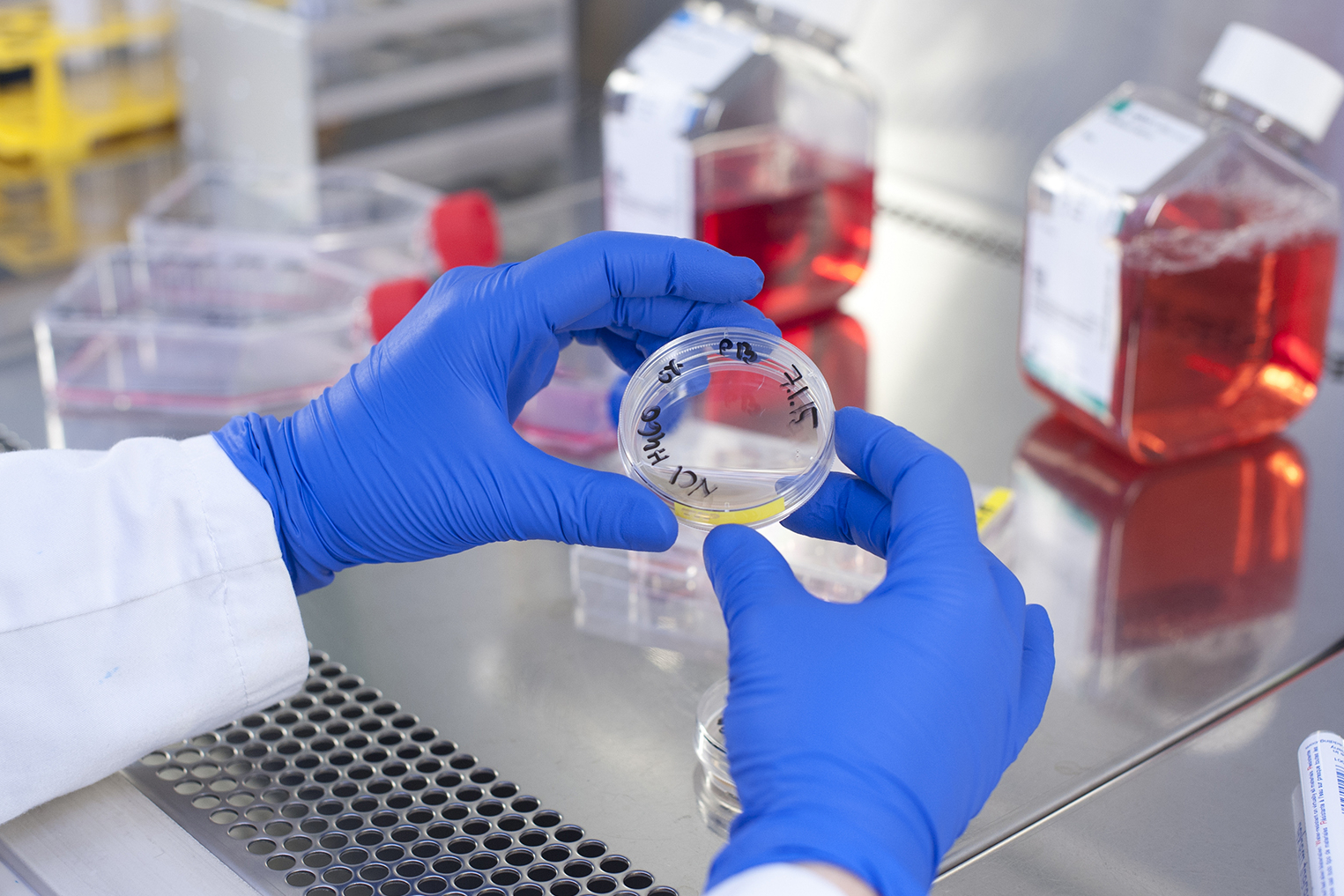
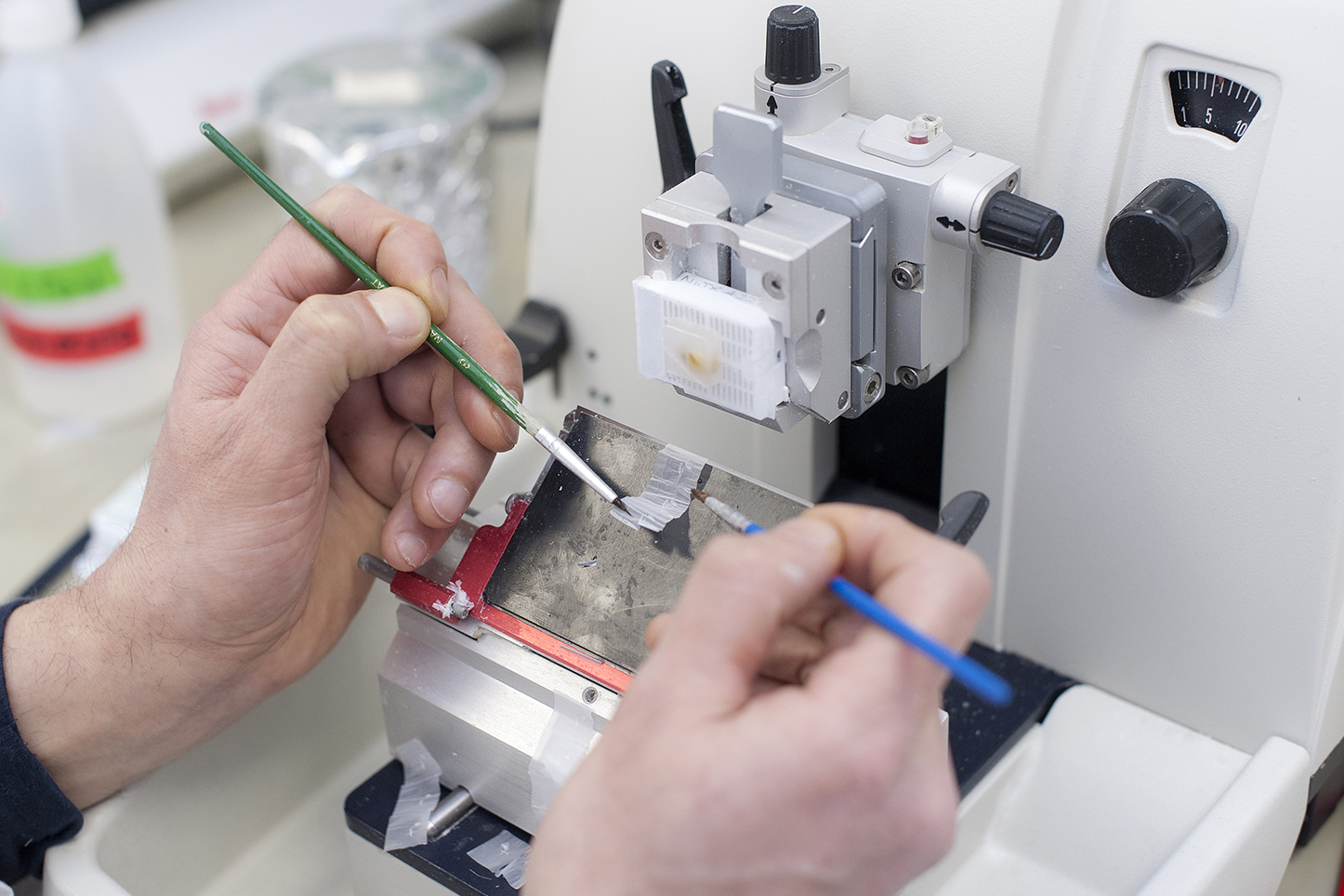
The DFG is a particularly important funding body for basic research in cell biology. The IFZ
has so far been involved in four Collaborative Research Centers, including a Transregio SFB
together with China. It is thanks to the appointment of Prof. Verena Jendrossek that together
with colleagues from clinics and institutes at the UK Essen and the ZMB, two consecutive
DFG-funded Research Training Groups (RTGs) in radiation sciences with the role of the
spokesperson at the IFZ have been acquired: The unique features of the Essen RTGs (RTG
1739 “Molecular determinants of the cellular radiation response and their significance for the
modulation of radiation sensitivity”; funding period 2012 – 2021) and currently RTG 2762
“Heterogeneity, plasticity and dynamics of the radiation response of cancer cells, tumor and
normal tissue cells in cancer therapy” (first funding period 2022-2027) are the focus on
radiobiological/radiooncological research questions and the joint training of natural science
and medical doctoral students. More application-oriented research work is financed by
scientific project funding from the federal government, the federal states, the EU or German
Cancer Aid.
In order to finance research work, especially during the start-up phase, the Institute was
supported from 1990 to 2023 by a non-profit association, the IFZ-Fördervereinigung, from
which the German Foundation for Research into Cancer Diseases DeSEK was founded in
2008 in order to raise additional private funds and continue to support research work at the
IFZ.